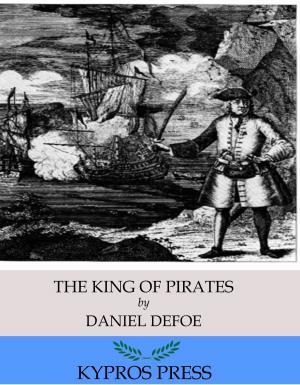| Author: | Tempo Team | ISBN: | 9781301490486 |
| Publisher: | Tempo Publishing | Publication: | August 23, 2013 |
| Imprint: | Smashwords Edition | Language: | English |
| Author: | Tempo Team |
| ISBN: | 9781301490486 |
| Publisher: | Tempo Publishing |
| Publication: | August 23, 2013 |
| Imprint: | Smashwords Edition |
| Language: | English |
Dutch, French, German and Javanese blood coursed through his veins, but Ernest Francois Eugène Dekker possessed a spirit that was Indonesian to the core. The Dutch colonial government branded him a very dangerous man, and the political powerhouse spent a lot of time in exile or imprisoned.
Dekker was the first person to establish a political party in Indonesia. The Indische Partij held a fiercely uncompromising stance in its fight for Indonesia’s independence. As one of the chief initiators of the struggle for independence, Dekker’s political thoughts were far ahead of his time. When translated into propaganda, his ideas inspired Tjokroaminoto to gather up mass support. His ideas on nationalism were key when Sukarno established the Indonesian National Party. He was languishing in exile when the proclamation of the Indonesian independence was declared.
This is a special edition—Tempo’s way of celebrating Indonesia’s independence—on the life of the courageous man who also came to be known as Danudirja Setiabudi.
HE was a political powerhouse ahead of his time. Ernest François Eugène Douwes Dekker was his name. As disappointment grew in some circles with the elitism portrayed by the Boedi Oetomo political society, Dekker came forward with fresh political views. He founded the first political party in Indonesia, which aspired to fight for equal rights for all ethnicities in the Indies.
The founding of the Indische Partij breathed life into a movement to win independence. Its emergence was wildly received. In his book, An Age in Motion: Popular Radicalism in Java, 1912-1926, author Takashi Shiraishi said the propaganda tour spearheaded by Dekker was the first major political gathering of its kind in the Indies. This movement became key in future strategies on the gathering of masses on a large scale by Tjokroaminoto in order to gain public support for Sarekat Islam.
It cannot be denied that the Indische Partij laid an important foundation for nationalism in the Indies. This political organization was far more radical in its methods than Boedi Oetomo. In addition to calling for an overhaul in the field of administrative services, Dekker cried out for tax reform and political reform in agricultural practices. His movements were monitored because he rejected discrimination. He was labeled a dangerous agitator. Dekker was a figure who rocked the Dutch-Indies government.
Short-lived after it was forcibly disbanded by the Dutch, the Indische Partij, nevertheless, was able to foster hope and breathed long life into subsequent movements.
Dutch, French, German and Javanese blood coursed through his veins, but Ernest Francois Eugène Dekker possessed a spirit that was Indonesian to the core. The Dutch colonial government branded him a very dangerous man, and the political powerhouse spent a lot of time in exile or imprisoned.
Dekker was the first person to establish a political party in Indonesia. The Indische Partij held a fiercely uncompromising stance in its fight for Indonesia’s independence. As one of the chief initiators of the struggle for independence, Dekker’s political thoughts were far ahead of his time. When translated into propaganda, his ideas inspired Tjokroaminoto to gather up mass support. His ideas on nationalism were key when Sukarno established the Indonesian National Party. He was languishing in exile when the proclamation of the Indonesian independence was declared.
This is a special edition—Tempo’s way of celebrating Indonesia’s independence—on the life of the courageous man who also came to be known as Danudirja Setiabudi.
HE was a political powerhouse ahead of his time. Ernest François Eugène Douwes Dekker was his name. As disappointment grew in some circles with the elitism portrayed by the Boedi Oetomo political society, Dekker came forward with fresh political views. He founded the first political party in Indonesia, which aspired to fight for equal rights for all ethnicities in the Indies.
The founding of the Indische Partij breathed life into a movement to win independence. Its emergence was wildly received. In his book, An Age in Motion: Popular Radicalism in Java, 1912-1926, author Takashi Shiraishi said the propaganda tour spearheaded by Dekker was the first major political gathering of its kind in the Indies. This movement became key in future strategies on the gathering of masses on a large scale by Tjokroaminoto in order to gain public support for Sarekat Islam.
It cannot be denied that the Indische Partij laid an important foundation for nationalism in the Indies. This political organization was far more radical in its methods than Boedi Oetomo. In addition to calling for an overhaul in the field of administrative services, Dekker cried out for tax reform and political reform in agricultural practices. His movements were monitored because he rejected discrimination. He was labeled a dangerous agitator. Dekker was a figure who rocked the Dutch-Indies government.
Short-lived after it was forcibly disbanded by the Dutch, the Indische Partij, nevertheless, was able to foster hope and breathed long life into subsequent movements.














![Cover of the book Great Expectations : [Illustrations and Free Audio Book Link] by Tempo Team](https://www.kuoky.com/images/2013/august/300x300/9789878880303-JjRd_300x.jpg)
